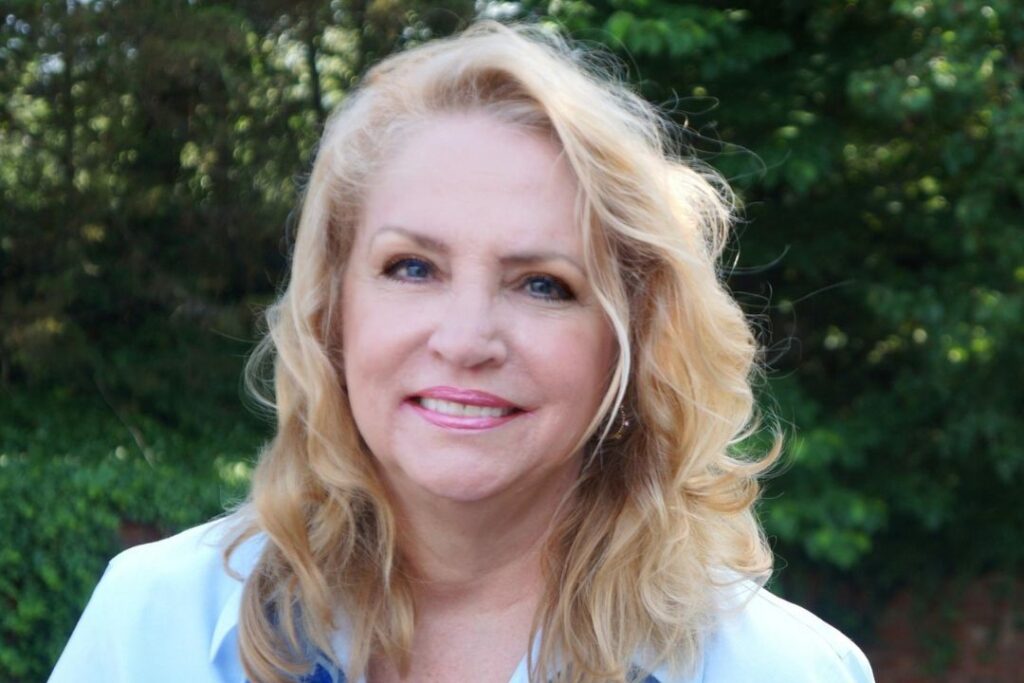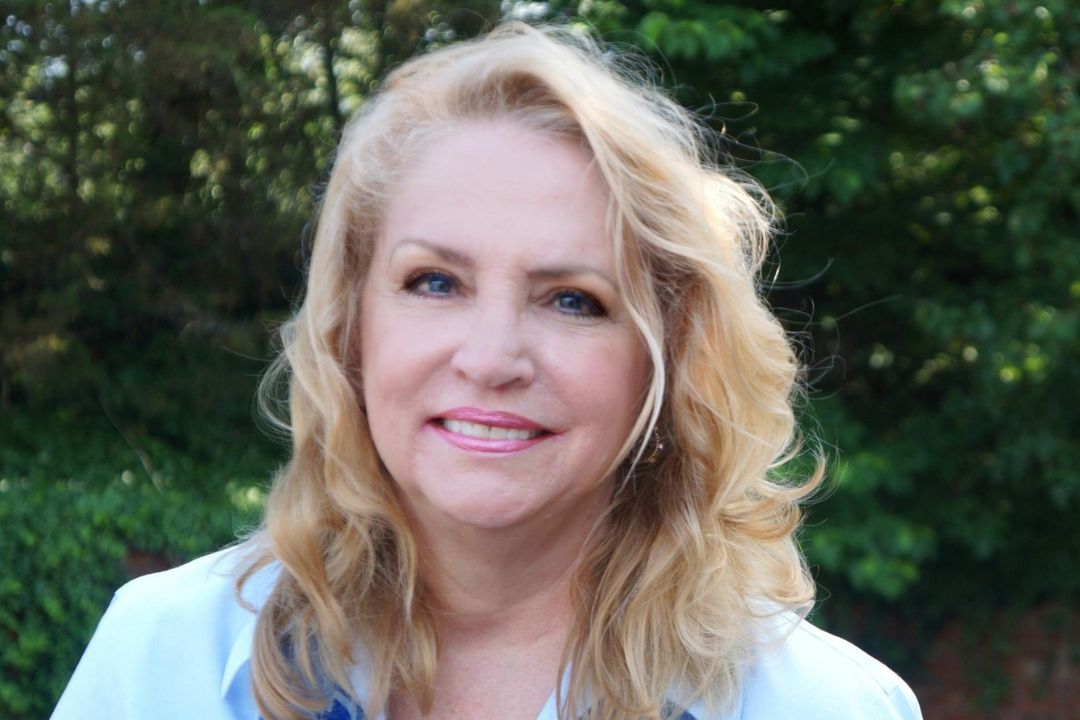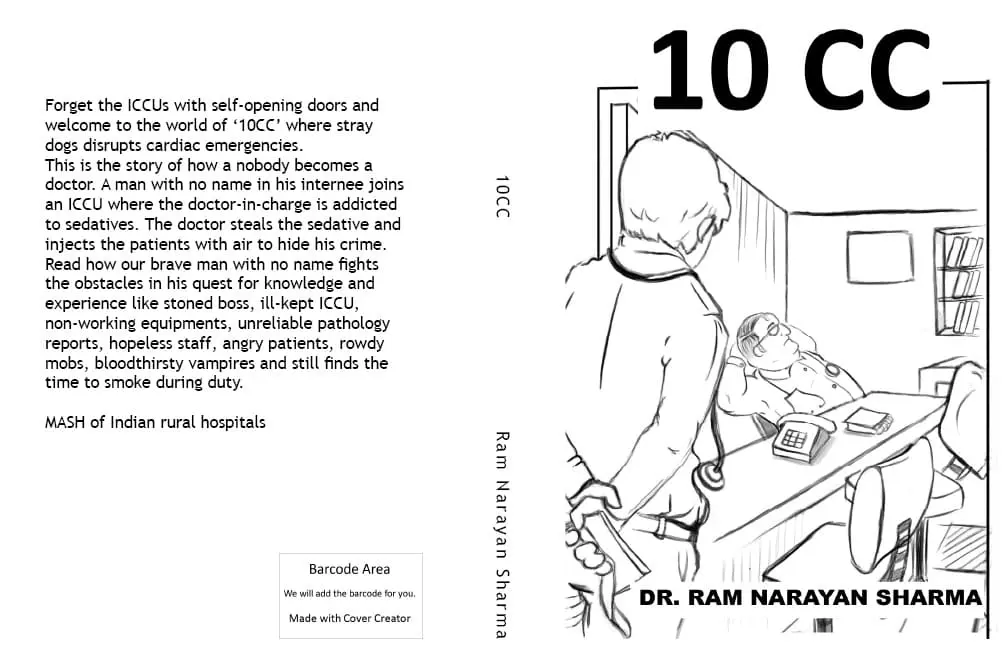Every writer enjoy book on their weekend and on any occasions. Therefore, reading books teach us every day, and that is a time when most of our learnings occur. Every day is a new and special for us.
However, in case of Jackie, her education actually happened when she joined IBM. In 1972, during her schooling, everywhere was violence, the protesters, and the Vietnam War. Jackie also shared how her mother used to read romantic novels and enjoy her life. Jackie has also written a poem, “Out from the Shadows” accidentally, upon reading, it brings power to the one's selfness.
She believes, marketing is writing and selling an idea. Therefore, she took one more step and started investing more in writing romance as an endeavour to get lost in love stories.

About Jackie Lynaugh
Jackie's passion is writing, and her favourite place is the ocean. Besides, she loves painting landscapes, collecting sunglasses and crave sunshine like there's no tomorrow. She has worked as a marketing manager at IBM, writing technical spec-sheets for computer engineers. Now retired from the corporate world and writing fiction, family saga, and romance full-time. She is currently living in South Carolina.
Tell us when did you find interest suddenly evoked in you for reading or enjoy book, and at what age you got your first book and its name?
The first book I read at a young age was “Gone With the Wind”, by Margaret Mitchell. I read it again in a different mindset at 40 years old. The genre I gravitate to is romance and family saga. I also write in that genre. I don’t write historical romance. I write what I know.
My mother was a romantic bookworm. I watched her get lost in her paperback romance novels growing up. Some of her books, she would tape a brown paper grocery bag over the book cover. I remember the first time I pulled off the brown paper to see what she was hiding on the cover. It was like unwrapping a present. I would read her romance books when she was out of the house. From then on, I dreamed of riding off on a white horse with the shirtless hero my mother was hiding on the cover of the book.
Reading books for enjoyment is a luxury I never had while raising my children and during my corporate career, and as a business owner. Life was too busy to just relax and get lost in a great novel. I know I missed out, and I am making up for lost time reading for pleasure.
Where did you finish your schooling, and what experiences of life counted in your writing career, loving and enjoy book?
I don’t believe we ever finish our schooling. Life lessons happen every day. I dropped out of high school in 1972, went to night school, and later took the General Educational Development Test (GED), which took me nowhere. In the ’70s, racial tension and school dropouts were high, and the Vietnam War and protesters were on every corner. The world was on fire as peace signs, tie-dye t-shirts, and standing up for our rights were the thing. The '70s is a future novel in the making I hope to write someday. Life lessons in a small southern town are on my bucket list for my seventh novel.
Fast-forward to the 90s, I returned to the classroom at Winona State University in Minnesota. Short-lived but productive. In 1994, I began my corporate career with IBM in marketing. This is where my education began. I learned more on the job than I ever learned in a classroom. Later IBM relocated us to North Carolina where I wrote technical spec sheets for computer engineers. The documents were online and sent with the product for the customer to read and learn how to use their new computer and software.
Would you like to tell us when did you write your first poem and read it for us?
I fell in love with poetry in college. In the summer of 1993, I wanted to add credit toward my marketing degree and took a poetry class. It felt beautiful to hear words flow, and Walt Whitman turned me on to poetry.
The first poem I wrote was by accident. I was writing notes for my novel, At Her All. The main character Lara Faye Edison is a college student. I was trying to get inside the main character's head. In my past novels, if I wanted to get into character, I would paint with oil on canvas the location's scenery.
Also, I sketched the scene on paper with a pencil and the character’s faces helped my creativity flow. It was like I could talk to the character, and they could talk to me. I am a visual writer. By doing this, the story would flow out of me like turning on a faucet, and the characters came alive. The poem in the novel At Her All is about Lara and her hovering parents.
Poem, “Out from the Shadows” by Jackie Lynaugh
“I wasn’t born to spoil under anyone’s shadow and rot like an unhatched egg. I wasn’t born to follow orders. I wasn’t born for boredom. I wasn’t born to satisfy someone else’s needs, to take care of them or they take care of me or hide in their arms or to be taken for granted. I wasn’t born to follow ideas of what truth is or to live according to someone beliefs or to think along their lines or to learn their facts. I was born to think independently I was born to find my own truth and make my own rules and find my own way. I was born to meet life full throttle. Walk the Appalachian trails. To be seduced by an alpha male. Kissed a thousand times and loved for a million years. To meet different faces, travel, and learn other cultures. Watch the stars at night. Take long walks dance on the beach be swept off my feet be taken by storm to be heartbroken. Stunned. Shocked. Devastated. Lost and found again. I was born to get my hands dirty and plant a garden and watch it grow. To get sand between my toes. Mud on my face. Sand spurs under my feet. I was born to jump into the ocean. Pick up seashells and find starfish. To go beyond time and space. To welcome miracles. To share a wishbone and make a wish. To totally lose myself. I was born to feel everything and to experience everything. The bitter taste of sorrow. The foul taste of hatred. The sweet taste of love. I was born to learn how to be grateful. I was born to know the truth and learn how to give to I have nothing more. To work hard and play hard. To pray. I was born to learn how to speak the language of love and unlock my heart. How to take care of my health. Learn how to let go of all expectations and let the future unfold like unwrapping a present. I was born to learn how it feels to lose everything except for the things that matter. I am born to spread my wings fly towards the sun burn into ashes fall to the earth and rise again. I will be proud of my scars and my wrinkles. My stories. My memories. My wisdom. My freedom. I was born to be free and therefore, time will let me live my life out from the shadows.”
What circumstances made you to choose career into the field of marketing than going for writing? Could you please share with us in detail?
I’ve been in business for many years, and I was always marketing something. Marketing is writing, elaborating about a product, service, retail, wholesale, or selling an idea. In any trade, you have to write to market. It’s a labor of love.
Writing romance is one of the unlimited endeavors to get lost in a love story. To be invited into another human’s world of romantic thoughts and read stories about falling in love is the greatest triumph for a romance writer. I want the readers to question, cry, laugh, hope, feel emotion, fall in love, and dream you are the one and only. An overall feeling you belong in the story rescues optimism. Romance starts with an invitation into the most beautiful thing, love. Writing about love is personal.
The first manuscript I wrote was about health, and I mailed it to a publisher in New York in 1987. Motivated by the women who exercised at my health salon called Slender You in Winona, Minnesota. As a business owner of an exercise salon, I learned how important it was for women to support women. The manuscript was written to inspire women to exercise, with motivational quotes, and a diary to track success and healthy recipes. Six months later, it was rejected.
I filed the manuscript in the closet for safekeeping. I sold my business in 1989. The computer industry took off, and I knew IBM would change my life. I kept writing stories and frequently drew inspiration from my own experiences in the corporate world and private life. My career ended with a buyout at IBM. I reinvented myself and did something I had dreamed of for years. I took the real estate test and got my license to sell homes in North Carolina. I found success in real estate for 23 years. I am now a retired broker and writing romance and family fiction novels full-time.
I witnessed my son pass away tragically at the age of 45, in 2017. I learned he was also a closet writer, and he loved writing about his hunting and fishing trips. Heartbroken by my son’s death I learned writing was helping me with my grief. It was time to be the author I dreamed of being. In 2018 I wrote romance while working full time and as a caretaker for my mother who died at my home under the care of hospice.
I self-published my first novel, Plantation Hill in October 2020. Never planned to write a series, but I just kept writing. The next novel, Nectar (2021 second series) and then Hart to Hart (2022 third series) in Plantation Hill. The novel Inside Glass Towers was published in May 2021. I began writing Inside Glass Towers when my beloved husband was diagnosed with stage 3 lung cancer and treated with radiation and chemo at UNC Cancer Center. My latest novel At Her All was published in February 2022 and the story would never be complete without At His All (second series) out in 2023.
Life squeezed every ounce out of me. My books have been my recovery from life’s blistering truths, turbulent trials, inner turmoil, overwhelming grief, and a maze of absolute chaos through the healthcare industry during the pandemic. I am a caretaker's survivor and I came out on the other side stronger and wiser. It was time to come out of the closet, and share my novels with the world.
Today, my husband is cancer free. A comeback story all in itself for a future novel. Since retiring in 2020, I have published five novels in two years. Stories that have been buried in my brain for years came alive. To write and publish you cannot be a wimp.
Do you currently write as a full or part-time, and why?
I write full time. I am currently writing the novel At His All, the second series in At Her All, a bottle of lies. A Her and His (ladies come first) family saga. I have been patiently waiting for this stage in my life to open up and be who I was born to be, a storyteller. I came from a long line of storytellers.
Over the years, I was inspired by all the characters I met while growing up in a small, close-knit agricultural town in Belle Glade, Florida. The Glades motto is, Her Soil is Her Fortune. My grandfather Walter and my father Douglas were both incredible storytellers and role models for my future craft and my desire to write stories.
Which book you have written for the first time? It is fiction real life inspiriting? Moreover, tell us which character is your favourite one from the book and its journey, creating the character making it to live.
My first book is Plantation Hill. A Florida location from 1990-1992. Inspired by a southern family in the citrus business growing oranges. The family lives in an old southern white mansion tucked behind large oak trees with Spanish moss hanging from the trees that looked like an old man's beard. A typical Florida scenery of the old south.
My favorite character is Tee Hart. The readers tell me they fell in love with Blossom Hart, Tee’s daughter. The Hart family goes on different journeys, but with this family, blood is thicker than orange juice. And money grows on trees.
What struggle aspiring writers face? Could you please share your journey with us, when you were being an aspirant, what learnings you got as a first-time writer?
I was born an aspiring author. Two years as a self-published author have been exciting and challenging. If you are not ambitious, curious to learn, and thin-skinned, I’d find another industry to tackle. If you don’t like marketing yourself, social media, technology, and the ever-changing secret world of publishing, it might be a better option to work on your craft and keep writing and keep your day job.
The World Wide Web is still the Wild Wild West. The publishing industry has been like stepping back in time to find the secret code. To me, the most important thing is to entertain the readers.















